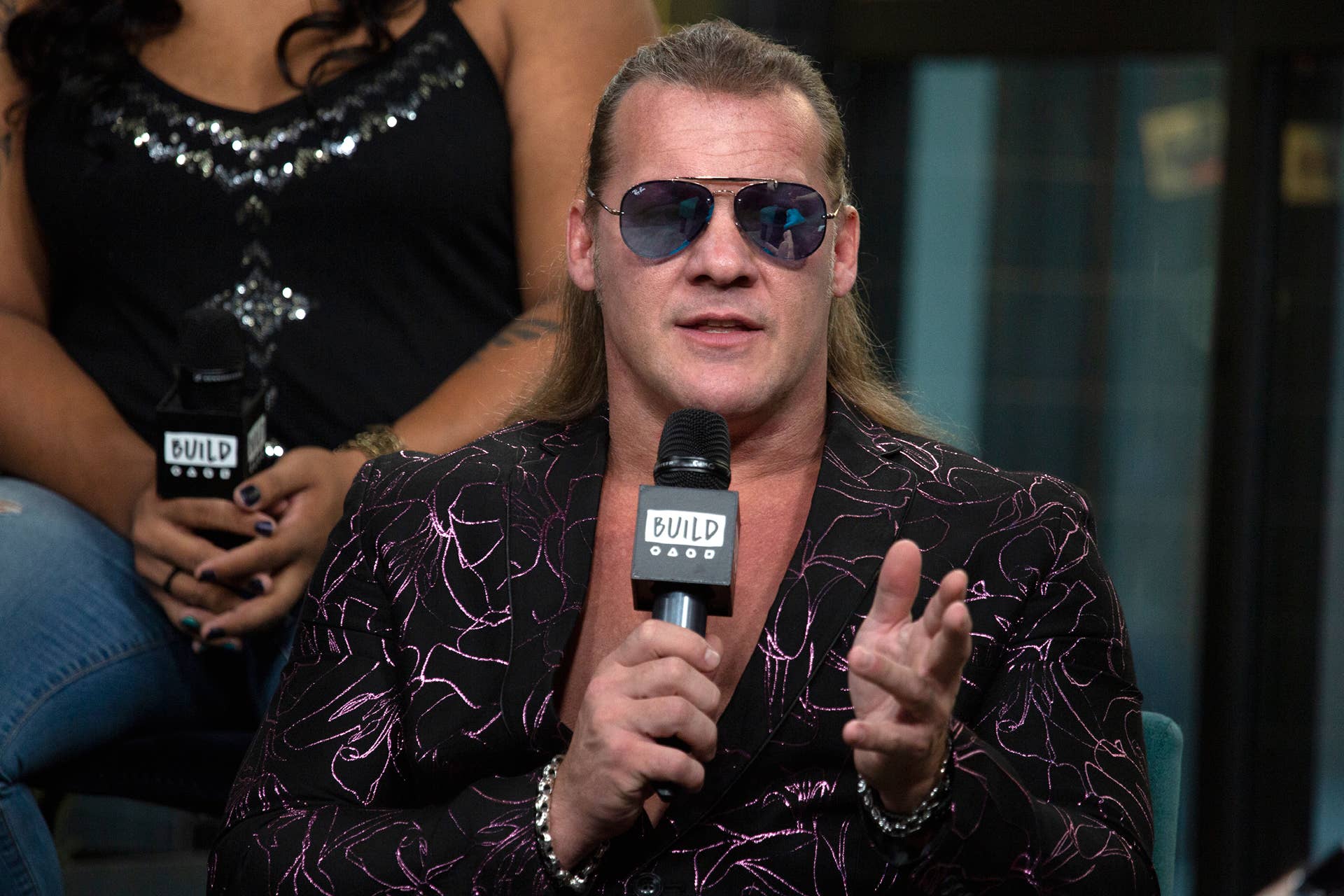
For some, the world of professional wrestling was all about the over-the-top insanity that took place within the squared circle. That weekly Monday night fix during the late '90s was enough for many casual fans, and they'd grow up not knowing the full story of what would go on behind the scenes. That's where series like VICE TV's Dark Side of the Ring come in; during their acclaimed first season, they dove into the real-life circumstances that many superstars had to deal with, tackling some of the largest tragedies to hit the world of pro wrestling.
Season 2 of VICE TV's Dark Side of the Ring kicks off with a special two-hour episode dedicated to the tragic Chris Benoit story—Episode 1 of which was already previewed late last week. They not only examine fateful night where former WWE Champion Chris Benoit took his life and the lives of his wife Nancy and their son Daniel, but how his life potentially got to that point. You get to hear stories of his dedication in the ring and how real-life tragedy may have played a part in his downward spiral from those who knew him best: Chavo Guerrero (nephew of Chris' good friend, the late Eddie Guerrero), Vickie Guerrero (Eddie's widow), Dean Malenko and his wife, as well as Nancy's sister Sandra Toffoloni and Chris' surviving son, David Benoit, as well as Jim Ross and former AEW World Heavyweight Champion Chris Jericho, who worked with Benoit in-ring for years.
We got a chance to speak to Jericho about his appearance on the Benoit episode of Dark Side of the Ring (which airs on VICE TV on Tuesday, March 24 at 10 PM EST), his thoughts on the issue of CTE in pro wrestling that came about after the Benoit tragedy, and more.
How did you come to be a part of this look at Benoit's life, and how did you feel specifically about how this episode came together?
[This was] basically quarterbacked by Chavo Guerrero who called me and kind of told me what was going on and I'd watched the first season and really enjoyed it. I thought they did a great job with very touchy situations: the Von Erichs, the situation with [Bruiser] Brody. I thought they did it classy and I thought they did it without being...obnoxious about it, shall I say.
Chavo called me and told me they were going to be doing one on Benoit; if he hadn't told me, I would never have done it. But he said, "listen, if they're going to be doing this anyways, there's other networks and other people that are going to be making this documentary and talking about the stories. We need to do it the right way. If we don't do it the right way, nobody else will." So that's when I said, "listen, man, if you're behind it"—you know, I love Chavo like a brother and trust him completely, and obviously [I] was very close to Chris as well. So I said, "if you're involved and quarterbacking it then I'm involved as well." Once you have the right person in charge, then everybody gets involved, like Vickie [Guerrero] and Dean's wife and all the people that are very close to those guys.
I certainly thought they did an excellent job. I thought the story was done well. I think it will be very cathartic to a lot of people, but it's also very heavy, a heavy subject to begin with. They did an excellent job and it's a very informative and not sensationalistic show. A very honest portrayal of Chris and Eddie's friendship, which led to both of them passing away very early.
I've heard in the past that there were other projects about the Benoit tragedy in development. Had you ever been approached about a project of this caliber before?
No. I just thought that this is the right time and that this is not something that I'll do again. It doesn't need to be done again. I think we should kind of put the cap on it. You know, after writing about it in books and all that other stuff. I think that the best way to kind of say what I felt, kind of just leave it at that.
At the beginning of the episode, you made note to say that if someone was going to give me flack for talking about Benoit's legacy, basically, they should just turn off the program. Have you gotten flack in the past for speaking out about all sides of Chris?
Not really. I mean I did a podcast I wanted to, so what I did a few years ago was about Chris's career. It was not about Chris's death. It was not about the last weekend of his life. I wanted to put that aside and just talk completely about his career, his genius in the ring, the number of amazing matches that he had [and] that I had with him. And if you don't like that, and this insults you then don't listen. I'm not glorifying what he did. I'm not glorifying a murderer by discussing a man's career. That was very, very important to me, and that's kind of what I was echoing on the show. When you want I start talking about Chris being an amazing wrestler, one of the greatest of all time, that doesn't say that I'm excusing him for what he did or understanding it or not being totally angry at him for it, it's saying that you have to be able to put that aside the same way if you're going to talk about OJ Simpson's career, I mean there is a career and some brilliance on the football field there that you want to discuss without being tainted with the thoughts of what he did kind of in his later life, right? So that's kind of what I said in the podcast about Benoit, and that's what I was saying on Dark Side of the Ring as well.
I thought it was interesting too towards the end of this episode, both Sandra and David Benoit made note that you were basically the one that got them together after years of not being in contact. What was that timeline? Is that something that came together as this episode of this series was in production or had they been rekindled years earlier?
They had been rekindled years earlier, when I had Sandra on my podcast. I wanted to kind of talk about Nancy Benoit's career 'cause she's been forgotten, and [was] also a very tremendous performer and great at what she did. So I had Sandra on and afterward asked: "do you want David's number?" She's like, "I don't have it, we have not spoken in 10 odd years" or whatever it was at the time, and they had been connected. But that kind of started them both appearing on this show, which made them even closer together. I take great pride in the fact that, if nothing else, I was able to bring the two people in the world who were affected worse than anybody else. And I'm glad that they have each other now to, to talk with and then discuss life with and just be there for each other.
One thing that I'm glad that this series got into was the issue of CTE when it comes to Chris Benoit and pro wrestling in general. It came up earlier this year with Netflix's Aaron Hernandez documentary. As a wrestler that has been performing for decades, does that issue come up when you're looking back at your own career, be it the effects of taking chair shots and falls?
It's one of those things that I think, if you can say something positive about Chris' death, is that it really led people down the road of studying CTE and figuring out what it is. I would say like the first person that ever caught cancer, whenever that was probably like "I don't feel well what is this?" And probably died very quickly and that's where people kind of sort of figure out "oh, you can treat this, and these are the symptoms for it". I think CTE was much the same and that people didn't really understand it in 2007 now that put Chris put that in the forefront of the minds of athletes everywhere. I don't know why some people have it, some people don't.
In the '90s it was kind of the cool thing to take chair shots right to the head. Luckily, I haven't had any issues with that. We've stopped the chair shots to the head, we stopped going into the ring if you have a concussion, those days are gone. I think a lot of that stems from the Benoit tragedy. So if nothing else, we did learn something from it, and I've never really been worried cause I've always been fairly lucky with concussions and that sort of thing. But I am always cognizant of it and if I ever had any weird, paranoid feelings or heard any voices or anything like that, it would be, I'd be much more of in tune to being checked out for that.


